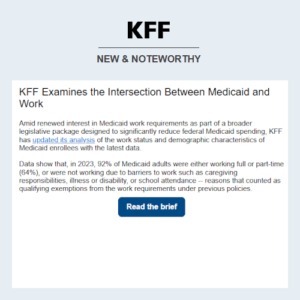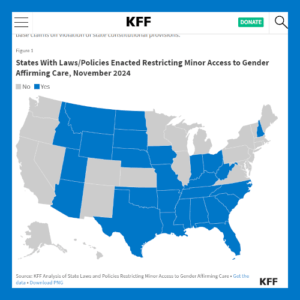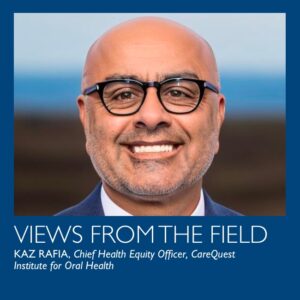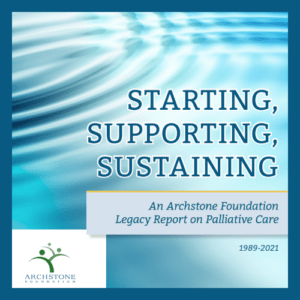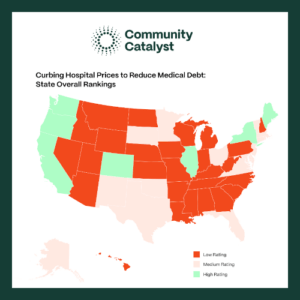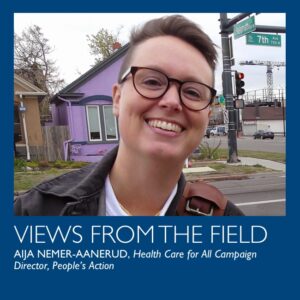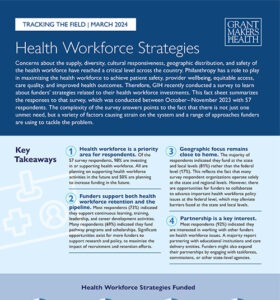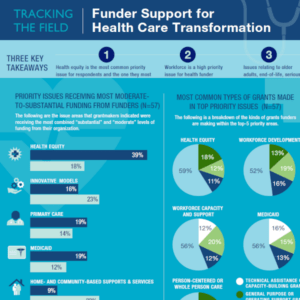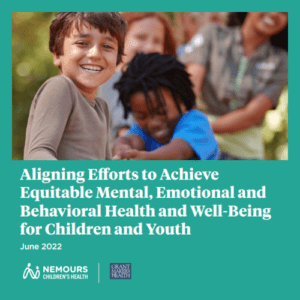Upcoming Events
Past Events
Featured Resources
Data Show That The Majority of Adult Medicaid Enrollees are Working
Amid renewed interest in Medicaid work requirements as part of a broader legislative package designed to significantly reduce federal Medicaid spending, KFF has updated its analysis of the work status and demographic characteristics of Medicaid enrollees with the latest data.
Youth Access to Gender Affirming Care at the Supreme Court: What to Know
Ahead of December 4 arguments in a Supreme Court case (U.S. v. Skrmetti) challenging the constitutionality of Tennessee restrictions for gender affirming care for minors, KFF explores the background of the case and potential rulings.
Explore Access and Quality Topics
Latest Resources
Sustaining a Statewide Coalition to Improve Access to Care and Coverage
2013 was a year like no other for coverage advocates in the United States. With the Affordable Care Act’s (ACA) first year of open enrollment nearly upon us, Vitalyst Health Foundation initially convened a small group of key Arizona partners to discuss how to most effectively deal with an incredible coverage opportunity amidst an uncertain landscape.
Funding Upstream Solutions is Key to Remedy the Social Ills of Trauma
The root cause philanthropy cannot ignore, regardless of the outcomes we seek or the population we serve, is exposure to trauma. Trauma is defined as the effects of a single event, a series of events, and ongoing circumstances that are experienced or perceived as physically or emotionally harmful and life threatening.
Care Partners: How Philanthropy Can Kick-Start Programs to Engage Community and Family Members to Improve Depression Care for Older Adults
Late-life depression is a pressing public health concern among an aging population facing increasing chronic health concerns. As many as 5 to 10 percent of older adults seen in a primary care health setting suffer from depression, which can last for months or even years, and is associated with both decreased quality of life and higher health care costs.
Upstream, Systems-Based Solutions to the Oral Health Epidemic
At the turn of this century, then Surgeon General Dr. David Satcher put out the first Surgeons’ General Report on oral health and declared that poor oral health was a “silent” epidemic that impacted much of the United States. That declaration was a pivotal moment that increased salience and spurred action around the issue.
Lessons from Abroad: Investing in Youth Mental Health
Now, more than ever, America stands to gain important insights from other countries that have developed comprehensive and effective approaches to youth mental health.
Publications and Reports
2024 Survey Summary: Health Workforce Strategies
Concerns about the supply, diversity, cultural responsiveness, geographic distribution, and safety of the health workforce have reached a critical level across the country. Philanthropy has a role to play in maximizing the health workforce to achieve patient safety, provider well-being, equitable access, care quality, and improved health outcomes. Therefore, GIH recently conducted a survey to learn about funders’ strategies related to their health workforce investments.
Funder Support for Health Care Transformation
This infographic summarizes the responses to a Grantmakers In Health funder poll, conducted October 2022, on how philanthropy is supporting health care transformation efforts, especially those concerned with improving quality of life, coordinating complex care, and taking patient preferences into account.

